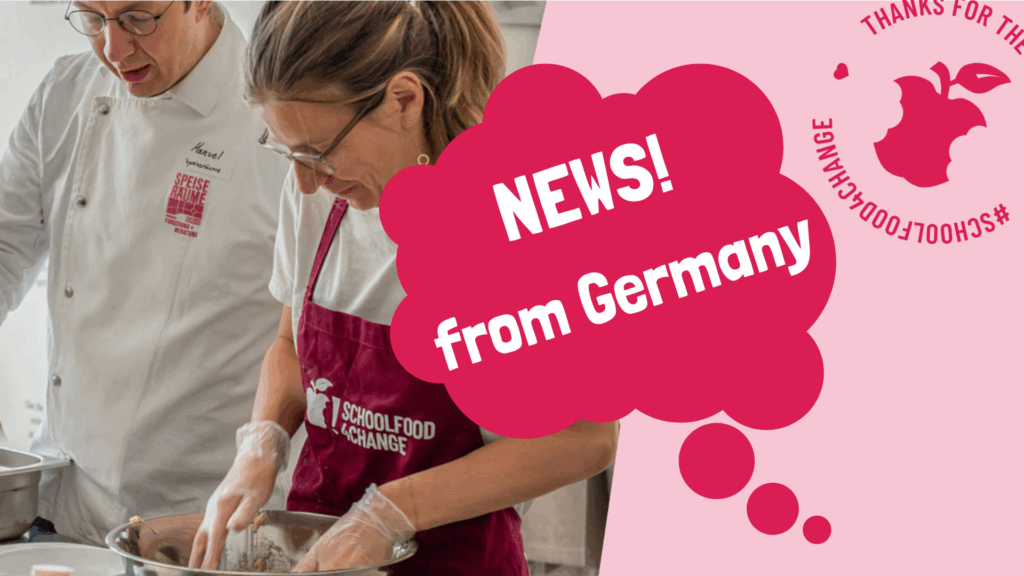Lately, our German partner Speiseräume – Office for Applied Food Policy, has worked together with Essen and Nuremberg school kitchen staff to explore what sustainable, healthy and tasty school meals can look like. The figures reached so far by the Essen and Nuremberg schools participating in SchoolFood4Change are impressive: totally, with seven caterers and a nursery that cooks its own meals, the German cities manage to serve lunch for around 32,000 children and young students every day.
A fruitful exchange of knowledge in Pollenzo
A key milestone in this achievement was the advanced training of Manuel Poschadel (Kitchen trainer at Speiseräume), at the University of Gastronomic Sciences in Pollenzo, Italy – a valued SchoolFood4Change partner leading our work on Planetary Health Diets and sustainable cooking.
The University of Gastronomic Sciences in Pollenzo is renowned for treating gastronomic education, sustainability, and food culture as an interconnected whole. Inspired by the European Slow Food and nutrition movement, Manuel returned to Germany full of fresh ideas – and went straight into the school kitchen!
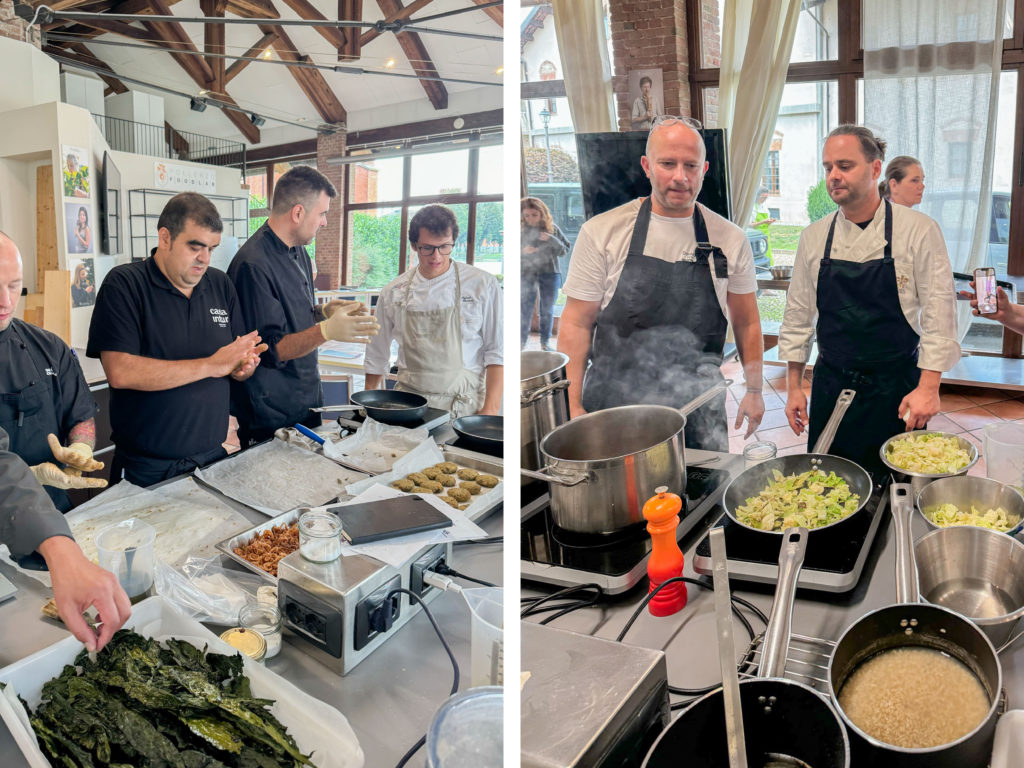
On-site visits: Understanding kitchen realities for tailored support
Before stepping into the training kitchen, Speiseräume carried out site visits to the production facilities of the project’s catering partners in Essen and Nuremberg. The aim was to gain an in-depth understanding of production processes, logistical conditions, and the organisational structures of each business – ensuring that the workshops could be designed to be both practical and needs-oriented.
As anticipated, the facilities differed greatly: some kitchens prepared around 900 lunches per day, while others produced more than 15,000 meals. The production systems also varied widely – ranging from cook-and-hold models to fresh-cuisine approaches.
These insights, which feed directly into the goals of SF4C, helped the workshops to address the real kitchen needs and support the development of realistic, actionable strategies and provided the kitchen teams with tailored support through workshops aligned with their daily working environments.
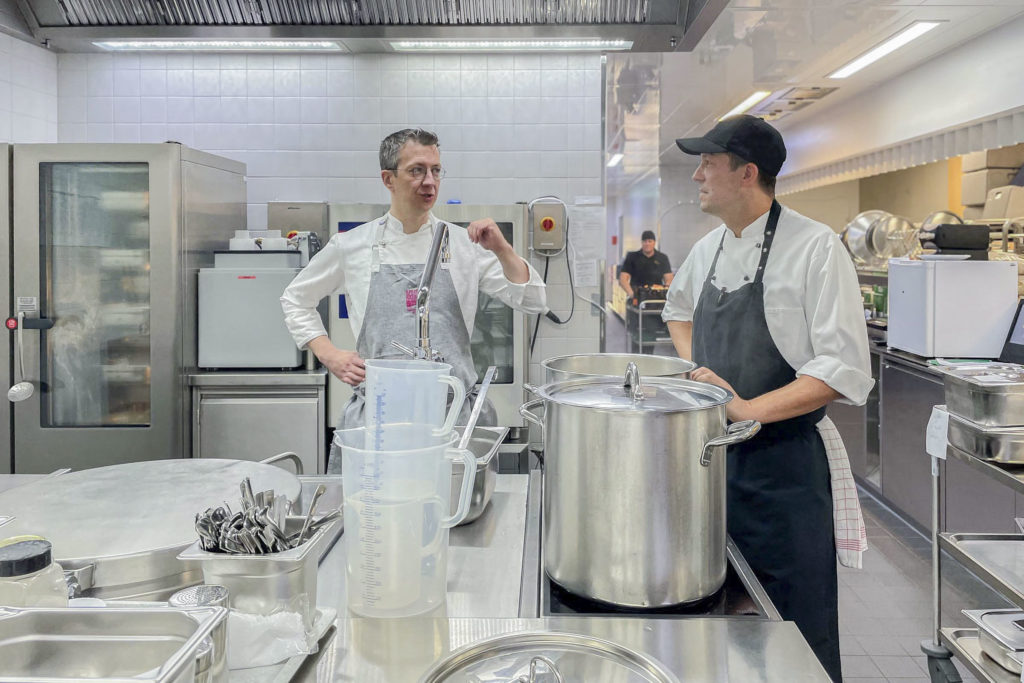
The cooking workshops – where theory meets practice
Together with the kitchen teams, Speiseräume carried out five intensive workshops – hands-on, collegial, and with plenty of room for exchange:
- Cooking practice – Using recipes developed by Manuel Poschadel to demonstrate that sustainable cuisine can be practical, healthy, and delicious.
- Seasonal meal planning – How can menus be designed to be regional, fresh, and still practical for everyday use?
- Children’s nutritional history – How do early childhood experiences shape eating habits, and how can children be gently introduced to new flavours?
- Legumes, tofu & co. – How can plant-based protein sources be creatively and child-friendly integrated into daily meals?
- Homemade semi-finished products – Moving from industrial convenience items to in-house solutions, such as homemade salted vegetables, broths, and spice pastes, to achieve more flavour with fewer additives.
The meals prepared were based on recipes by Manuel Poschadel, demonstrating that sustainable cuisine can be practical for everyday life, healthy, and full of flavour.
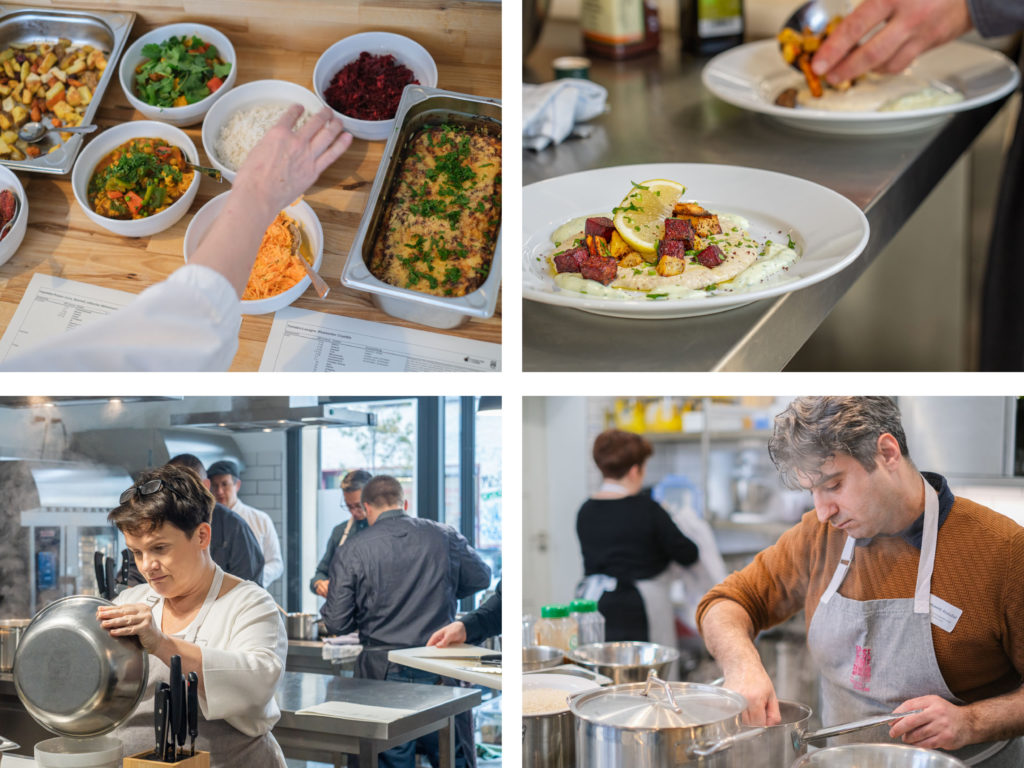
A fieldtrip to demonstrate what responsible school catering can look like today
Speiseräume also organised a field trip to Berlin to visit GREENs’ kitchen, gaining insights into their operational model and fostering valuable knowledge exchange.
In Berlin, GREENs stands out as a model of excellence in the school catering sector thanks to its comprehensive and sustainable approach:
- Using more than 90% organic produce, often highly fresh
- Sourcing meat, potatoes, and dairy products from regional organic suppliers
- Producing bread, rolls, and cakes in their own organic bakery
- Procuring chocolate, bananas, pineapples, and rice from organic fair-trade sources
- Maintaining a public welfare balance sheet
The experience at GREENs clearly shows why the SchoolFood4Change vision is so essential: to equip more and more schools with the tools they need to offer schoolchildren tasty, healthy, and sustainable meals every day.
Moreover, GREENs proves that sustainability, quality, and cost-effectiveness can go hand in hand when the right conditions are in place.
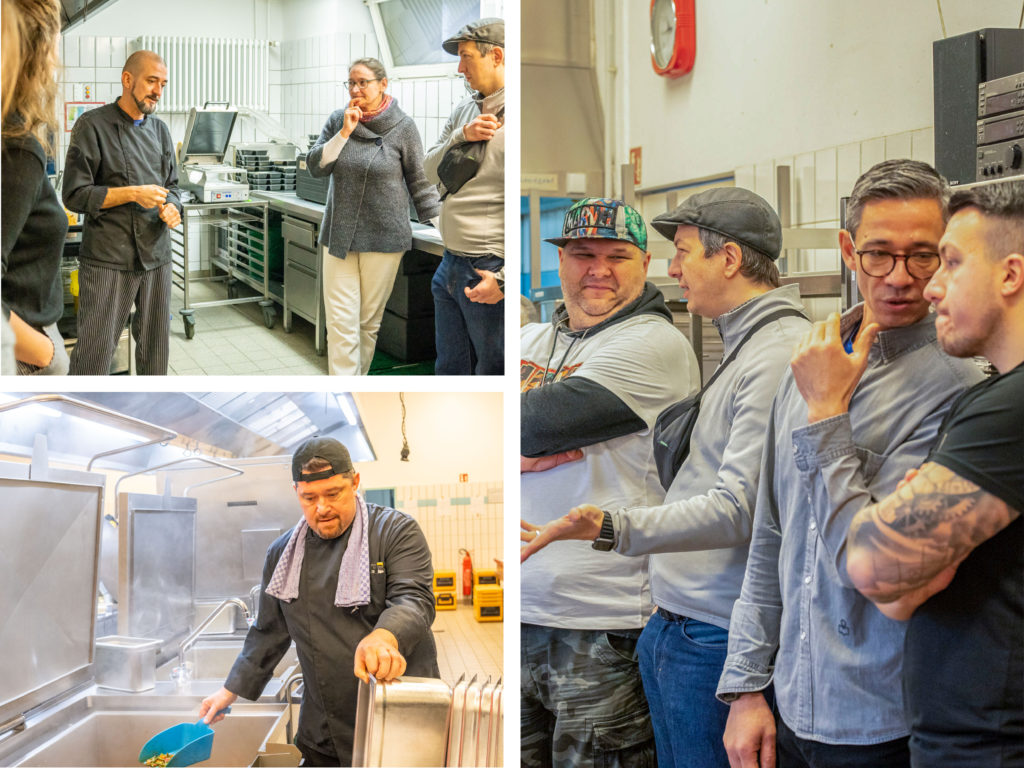
Thank you!
The workshops not only imparted knowledge, tested new recipes and connected culinary professionals, but they have also demonstrated that change is possible – with commitment, openness and the right tools.
We would like to thank and congratulate Speiseräume and everyone involved for their dedication their incredible work and the great pictures – and look forward to the next steps towards better nutrition for children and young people throughout Europe.
